Dark
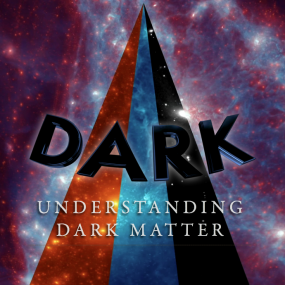
Dark is a 20-minute fulldome movie that explains and explores the nature of Dark Matter, the missing 80% of the mass of the Universe. The search for Dark Matter is the most pressing astrophysical problem of our time – the solution to which will help us understand why the Universe is as it is, where it came from, and how it has evolved over billions of years – the unimaginable depths of deep time, of which a human life is but a flickering instant.
Solar Quest
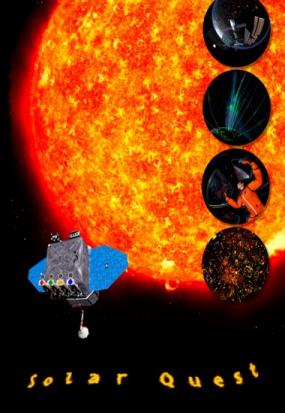
Solar Quest is an 11-minute planetarium short feature that demonstrates and provides an overview of the Sun – Earth environment. The show also discusses the impacts that space weather may have and how the Earth’s atmosphere and magnetic field protects all life on Earth. Highlighted in the show is the role of the Solar Dynamics Observatory (SDO) and how scientists have begun to use it as a way to help identify and predict severe space weather.
Cosmic Castaways
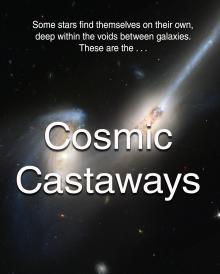
What happens when galaxies collide? What becomes of the stars within those galaxies? In 21-minute fulldome program Cosmic Castaways, we explore these questions and ponder the fate of our own Sun and solar system when the Milky Way galaxy and the Andromeda galaxy collide in the distant future.
Flight Adventures

Flight Adventures is a 30-minute multi-media show from the Children's Museum of Indianapolis that introduces children and families to the science, technology, and history of flight. The show features NASA’s research and the advancements that have made space travel possible, along with the important role that models have played in flight development. NASA resources include images and experts.
Oceans in Space
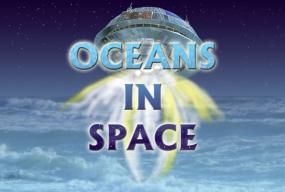
Oceans In Space is a journey of exploration that seeks out places where conditions are favorable for life to exist. This original and thought-provoking presentation highlights the search for extrasolar planets and an understanding of the conditions necessary to form and sustain life. Inspired in part by the goals of NASA's Origins Program -- an effort to answer the enduring questions that spur space exploration -- this program introduces audiences to the diversity of life on our home planet even as humans embark on the search for life in the universe.
Hubble Vision 2
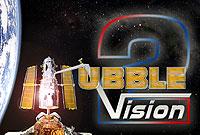
In this updated production of Hubble Vision, major themes in current astronomy and cosmology are presented: new views of the planets; peeks into starbirth nurseries; visions of stardeath in its many forms; explorations of star clusters and galaxies; and views of the universe when the earliest galaxies first shone.
MarsQuest
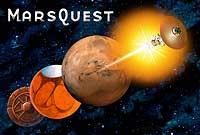
Narrated by Patrick Stewart, Captain Jean-Luc Picard of Star Trek movies and TV, MarsQuest is a chronicle tracing our centuries-long cultural and scientific fascination with the planet Mars. Set in a theatrical style "three-act" form with an epilogue, it weaves a satisfying narrative of what Mars means to humanity.
Two Small Pieces of Glass
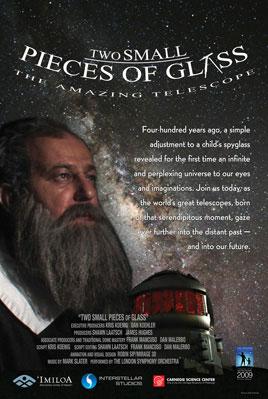
While attending a local star party, two teenage students learn how the telescope has helped us understand our place in space and how telescopes continue to expand our understanding of the Universe. Their conversation with a local female astronomer enlightens them on the history of the telescope and the discoveries these wonderful tools have made. The students see how telescopes work and how the largest observatories in the world use these instruments to explore the mysteries of the universe.
The Little Star That Could
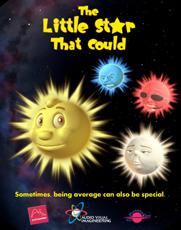
The Little Star That Could is a story about Little Star, an average yellow star in search for planets of his own to protect and warm. Along the way, he meets other stars, learns what makes each star special, and discovers that stars combine to form star clusters and galaxies. Eventually, Little Star finds his planets. Each planet is introduced to your audiences with basic information about our Solar System.
Origins of Life
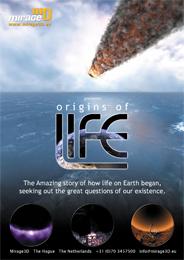
Origins of Life deals with some of the most profound questions of life science: the origins of life and the human search for life beyond Earth.
Starting with the Big Bang, in chronological order, the show deals with the prebiotic chemistry in the Universe, the formation of stars, formation of solar systems, and the first life on Earth. Furthermore, Origins of Life covers the great extinctions as well as our search for (primitive) life beyond planet Earth.
Origins of Life is a inspirational journey through time and a celebration of life on Earth. It features many recent discoveries related to life science, demonstrating that if there was ever a time that science made its greatest advances, it's right now!